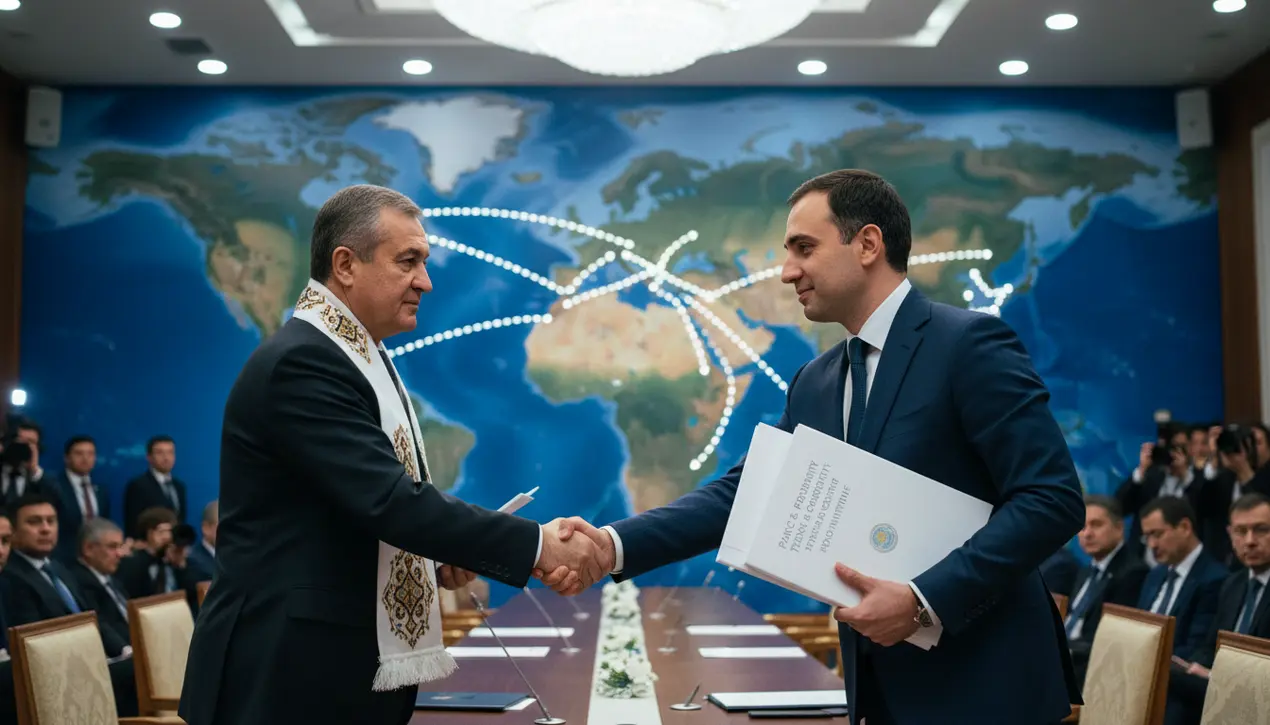
PoliticsdiplomacyPeace Talks and Treaties
Kazakhstan Backs Armenia's Peace and Transport Corridor Initiatives.
RO
Robert Hayes
19 hours ago7 min read1 comments
In a significant diplomatic maneuver with profound implications for the complex geopolitical architecture of the South Caucasus and Central Asia, Kazakhstan has formally endorsed Armenia's ambitious 'Crossroads of Peace' initiative during a high-level visit by Prime Minister Nikol Pashinyan to Astana. This endorsement is not merely a bilateral affirmation but a strategic recalibration, echoing historical precedents where smaller nations have sought to leverage transit corridors to enhance their sovereignty and regional influence.The initiative, championed by Yerevan, aims to unblock vital transport and economic links that have been largely paralyzed for decades, particularly those with Azerbaijan and Turkey, by establishing new routes under a principle of mutual recognition of territorial integrity and sovereignty. For landlocked Armenia, this represents a potential renaissance, a chance to break free from the economic stranglehold imposed by the closures of its borders with two of its four neighbors, transforming it from a geopolitical cul-de-sac into a pivotal hub connecting the Black Sea to the Persian Gulf.Kazakhstan’s backing, therefore, is a calculated move. As a nation itself heavily dependent on transnational routes for its hydrocarbon exports and with its own intricate balancing act between Moscow, Beijing, and the West, Astana recognizes the inherent value in diversifying regional transport pathways.This reduces the collective reliance on a single hegemon, a lesson not lost on analysts who recall the historical dominance of the Silk Road and its subsequent control by various empires. The support from a key member of both the Russian-led Collective Security Treaty Organization (CSTO) and the Eurasian Economic Union (EAEU) for a plan that implicitly challenges the status quo of Russian-dominated logistics in the region sends a powerful signal.It suggests a quiet but steady shift in the post-Soviet space, where member states are increasingly pursuing multi-vector foreign policies to secure their own economic futures, even when such policies may create friction with traditional allies. The success of this corridor, however, hangs precariously on the fragile and still-evolving peace process between Armenia and Azerbaijan.While Baku has expressed a general interest in regional connectivity, the devil lies in the details of border demarcation, security guarantees, and the specific modalities of transit. Furthermore, one cannot ignore the elephant in the room: Moscow's reaction to any infrastructure project that could potentially diminish its logistical leverage over both Armenia and Azerbaijan.The Kremlin has historically viewed the South Caucasus as its 'near abroad,' a sphere of privileged interest, and may perceive these independent corridor initiatives as a direct challenge to its influence. Consequently, while the Astana meeting marks a notable step forward, the path to actualizing these transport links is fraught with diplomatic landmines.It will require not just the political will of Yerevan and Astana, but also the acquiescence, or at least the non-obstruction, of Baku, Ankara, and ultimately Moscow. The coming months will reveal whether this vision of a new, peaceful trade route can transition from a diplomatic communiqué into steel, asphalt, and flowing commerce, or if it will become another casualty of the region's intractable rivalries.
#featured
#Kazakhstan
#Armenia
#peace initiative
#transport corridor
#regional cooperation
#diplomacy
Stay Informed. Act Smarter.
Get weekly highlights, major headlines, and expert insights — then put your knowledge to work in our live prediction markets.
Related News
Comments
Loading comments...
© 2025 Outpoll Service LTD. All rights reserved.